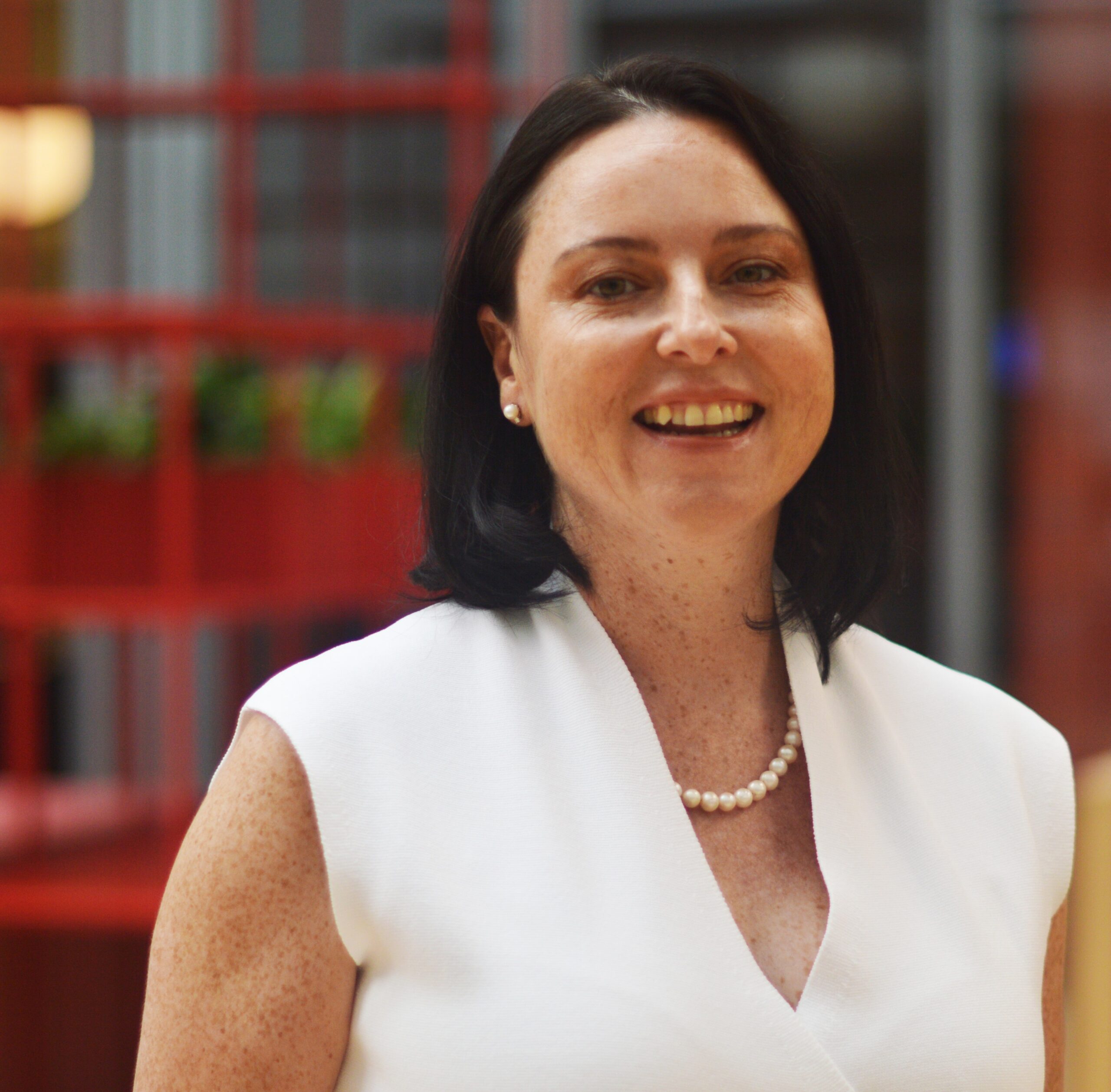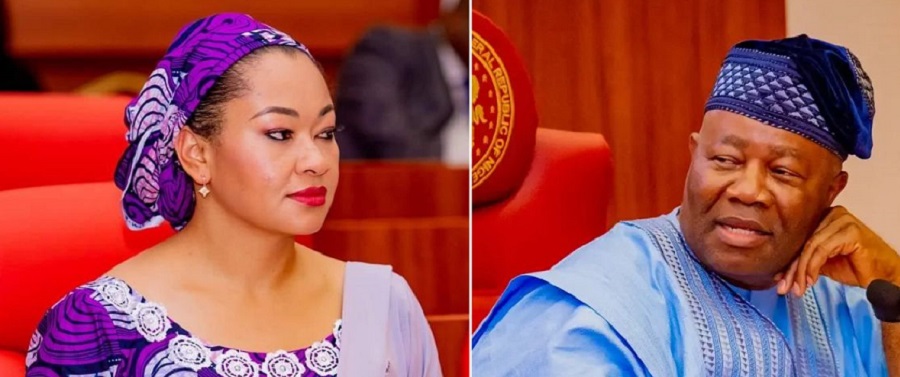E-Business
Irvine Partners Expands Footprint to Germany, Launches Dedicated Travel & Tourism Division

Irvine Partners, the leading independent creative communications agency in Africa, today announced the opening of its second European office in Stuttgart, Germany. This expansion coincides with the launch of a dedicated travel and tourism division within the agency.

Established in South Africa in 2010, Irvine Partners has grown its pan-African network, with wholly owned offices in Kenya, Ghana, and Nigeria. In late 2020, the agency expanded its international reach with the opening of its London office which is now the group’s headquarters.
The decision to launch the German office alongside a dedicated travel and tourism division is a natural evolution for Irvine Partners.
“Germany and the UK are two of the biggest source markets for tourism into Africa,” says Rachel Irvine, CEO and founder of Irvine Partners. “Given our deep understanding of the continent, its cultures, and its people, Irvine Partners is perfectly positioned to showcase the best of African hospitality, lifestyle and tourism products to these key markets.”
Leading the Irvine Partners team in Germany will be Monika Scheel-Kassai, a seasoned communications professional with over a decade of experience in the German media and PR sectors.
“Driving Irvine Partners’ expansion into Germany is a career highlight and a challenge I can’t wait to take up,” says Scheel-Kassai. “Africa is a continent with a rich tapestry of cultures, stunning landscapes, and unforgettable experiences. I am excited to leverage Irvine Partners’ vast African expertise and creative storytelling to showcase some of the continent’s best hotels, lodges, vineyards, and attractions to the German media and public.”
Irvine Partners Germany has already secured partnerships with several key travel and tourism clients, including the iconic Kruger Gate Hotel, situated minutes from South Africa’s world-renowned Kruger National Park.
“Irvine Partners has been our longstanding communications partner across Africa and the United Kingdom for many years,” says Anton Gillis, CEO of Kruger Gate Hotel. “It naturally made perfect sense to appoint them as our partner for the German market. As a client, I value having one team that understands my business from the ground up. The economies of scale this offers and the unparalleled reach this team brings to the table are invaluable to a business like mine.”
This expansion into Germany will be undertaken as a joint venture with established German communications, influencer, and social media agency, thepublic. Both Irvine Partners and thepublic are members of PRWA, the global network for independent agencies.
“thepublic has been on the ground for more than 19 years and knows the local market inside out,” Irvine says of the decision to launch as a joint venture “This means we can offer our clients exceptional value and market insight from day one, leveraging thepublic’s established relationships and expertise, combined with Irvine Partners’ Africa-specific specialist insights.”
On the Shared values and opportunity, Christian Josephi, CEO of thepublic, echoes these sentiments.
“We are delighted to be going into partnership with Irvine Partners,” he says. “Our values are aligned, and the potential for Irvine Partners to introduce German clients to the African media landscape is equally compelling. Together, we can create truly unique and impactful campaigns that bridge the gap between Africa and Europe.”
With a presence in both the UK and Germany, Irvine Partners is well-placed to bridge the gap between African tourism entities and European travellers. The agency’s deep understanding of African travel destinations and its proven creative communication expertise will allow Irvine Partners to develop and execute targeted campaigns that resonate with European audiences.
E-Business
Natasha: TMG Demands Probe of Alleged Data Breach in Failed Recall

Transition Monitoring Group (TMG) has called on the National Data Protection Commission (NDPC) to investigate what it described as an alleged unauthorised and fraudulent use of personal data of constituents in the failed recall attempt of Natasha Akpoti-Uduaghan, Senator representing Kogi Central in the National Assembly.

The organisation expressed concern that voters’ personal information may have been illegally harvested and deployed without their consent to generate signatures for the recall petition.
Speaking at a press briefing in Abuja, Auwal Rafsanjani, chairman, TMG, observed that such an act amounts to a gross violation of the Data Protection Act, which he said, also undermines public trust in the country’s democratic process.
He called for a forensic verification of the Voter Identification Numbers (VINs) submitted in the recall process, using the Bimodal Voter Accreditation System (BVAS).
TMG’s position came a few days after the Independent National Electoral Commission (INEC) dismissed the petition seeking to recall Natasha for failing to meet constitutional requirements.
The commission had revealed that following a thorough review of the signatures and thumbprints submitted by petitioners, only 208,132 signatories were verified, falling short of the required 237,278.
Rafsanjani, however, expressed concern on how more than 50 per cent of total registered voters in Kogi Central quickly turned up to sign the petition for the recall of Natasha in a country, he said, has historically experienced a worrisome level of voter apathy.
According to him, the incident calls for deeper insight that can only be brought about through thorough investigation.
“While it is noted that INEC has terminated the process at the stage of counting signatories to the petition as the number of signatories did not meet the constitutional requirements for further verification, the seeming fraud of harvesting voters’ details from anywhere to file the petition cannot be overlooked,” he said.
Rafsanjani added: “We are also deeply worried that against the provision of the Data Protection Act, personal data of citizens of Kogi Central Senatorial District have been harvested and used without their consent. This fraud must be investigated by the National Data Protection Commission to assure Nigerians that their personal data will indeed be protected as envisaged by the law.
“Further investigations to verify and authenticate the Voter Identification Number (VIN) through the BVAS must be carried out. Where investigations reveal a fraudulent process, the petitioners must be brought to justice to serve as deterrent to those who would be willing to be induced and used by politicians for this kind of charade in the future.”
But the NDPC, has, reiterated commitment to enhancing data privacy among public and private bodies in the country.
Dr. Vincent Olatunji, national commissioner and CEO, said the commission aims to enforce stricter data protection measures to safeguard sensitive public and private information, as well as promote regulatory compliance in line with relevant laws.
E-Business
NDPC to Strengthen Data Privacy Practices in Nigeria

National Data Protection Commission (NDPC) has reaffirmed its commitment to strengthening data privacy practices across Nigeria’s public and private sectors.

Speaking at a regional capacity-building workshop in Katsina for ICT personnel from the north-western states, Dr Vincent Olatunji, national commissioner and chief executive officer of the NDPC, said the commission is stepping up enforcement of data protection regulations in line with national laws.
Olatunji, represented by Mr Princewill Nnaka, head of the Commission’s Enforcement Unit, noted that the NDPC is focused on raising awareness of data rights, improving staff training, and partnering with development agencies to boost capacity.
He said stronger data protection measures would help reduce incidents of cyberbullying, online financial fraud, and loss of lives due to breaches of privacy.
“Data protection is a global concern,” he said. “Our goal is to ensure Nigeria aligns with international standards in the safeguarding of personal data.”
Also speaking at the event, Naufal Ahmed, director general, Katsina State Directorate of ICT (KATDICT), said the training aimed to equip participants with the technical knowledge required to implement the Nigeria Data Protection Act (NDPA) 2023.
He added that the initiative would also enable participants to serve as Master Trainers and Data Protection Officers (DPOs) in their respective institutions.
The three-day programme drew 40 participants, including four officers each from Kaduna, Kebbi, Jigawa, Sokoto, and Zamfara States, as well as 16 officials from various ministries, departments, and agencies in Katsina State.
E-Business
CJN Warns Judicial Officials against Data Breaches, Cyber Attacks

Kudirat Kekere-Ekun, Chief Justice of Nigeria, has cautioned judicial officials to be vigilant against data breaches, cyber threats and vulnerabilities in online systems as the judiciary continues to adopt digital technology.

Kudirat Kekere-Ekun, Chief Justice of Nigeria,
Kekere-Ekun gave the caution while delivering a keynote address at the opening ceremony of the 2025 National Workshop on Information and Communication Technology, held at the National Judicial Institute in Abuja.
The CJN represented by Salisu Garba, administrator, National Judicial Institute, emphasised that, as the judiciary handles cases, files, personal information, and classified government data, it remains a prime target for cyber attacks.
She underscored the need to safeguard the integrity of court records, warning that any breach could carry serious legal consequences and pose risks to national security.
She said, “Thus, a strong cybersecurity framework must be implemented to safeguard judicial data from unauthorised access, hacking, and corruption.”
The CJN emphasised the need for judicial ICT personnel to receive proper training in cybersecurity best practices, encryption methods, and secure data management.
She commended the National Judicial Council for its proactive efforts in modernising the judiciary, noting that the Judiciary Information Technology Policy stands out as a key initiative, offering a clear framework for the effective deployment and use of ICT in court operations.
In his welcome address, Olumoh Abdulazeez, Institute’s Secretary, emphasised that the annual workshop was aimed at equipping court personnel with the skills needed to keep pace with technological advancements.
“The effective integration of technology can greatly enhance access to justice and lower the barriers for litigants.’”

 News3 days ago
News3 days agoAOT Issues Bench Warrant against Sanusi, Aero Contractors MD

 News3 days ago
News3 days agoUS Cancels Visas for All South Sudanese Passport Holders

 News3 days ago
News3 days agoMeningitis Outbreak Kills 151 in Nigeria – NCDC

 News3 days ago
News3 days agoAfrimash Launches USSD Code to Revolutionize Poultry Farming and Combat Counterfeit Farm Produce

 News3 days ago
News3 days agoSERAP Calls on Tinubu to Reject $1.08Bn Loan, Probe Missing Funds

 News2 days ago
News2 days agoHow KongaFM 103.7 Helped Cure My Insomnia Challenge

 Broadcasting2 days ago
Broadcasting2 days agoMTN Battles Netflix, Showmax with New Streaming Platform

 News2 days ago
News2 days agoFG to Invest in Cutting-edge Broadcast Technology



















